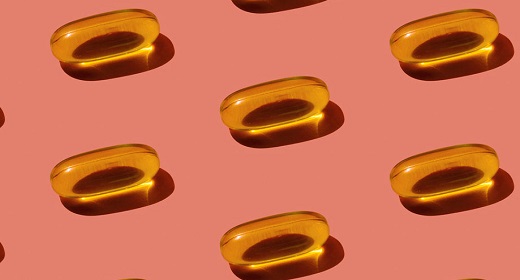by Leslie E. Korn Ph.D: It’s not even a vitamin…
The COVID-19 pandemic has us all concerned about enhancing our immunity and resilience, as we also manage the stress and even trauma of these events. Understanding how stress and trauma affect our health and immunity informs preventative actions we can undertake.
A just-published retrospective scientific study found that people with very low Vitamin D levels had a much higher risk of contracting COVID-19 (Meltzer et al, 2020). Supplementing with Vitamin D as a protective measure is inexpensive and may be especially important for older people, African Americans, Hispanics, and people living in northern climates who are especially subject to a deficiency (Cashman, K.D. 2020).
Throughout the pandemic, both first responders and the general public have experienced high levels of stress and trauma. Dr. Holick at Boston University School of Medicine suggests that the maintenance of sufficient serum levels of Vitamin D is essential to enhance immunity (Charoenngam, N.; Holick, M.F., 2020). Actually, what we call Vitamin D is not a true vitamin. Rather, it is a neurohormone synthesized by cholesterol in the body and via exposure to sunlight on the skin. In addition to supplements, the major sources of vitamin D are fatty fish, animal liver, fish oils, and egg yolks (Bivona, G., Agnello, L., and Ciaccio, M., 2018). Therefore, vegetarians and vegans are vulnerable to deficiency.
The best lab measure to determine Vitamin D deficiency is a serum, 25-hydroxy vitamin D, a blood test that can be requested as part of an annual blood test.
It is also important to understand that while acute stress can enhance immune function, chronic stress suppresses it (McEwen, 2000). Chronic stress produces cardiovascular reactivity, immunologic, and endocrinologic alterations (Kiecolt-Glaser, Malarkey, Cacioppo, and Glaser, 1994). It can also negatively affect functional and structural changes in the brain and increase immune activation in patients with PTSD (McEwen, 2000). For example, it is well known that stress can trigger autoimmune diseases such as rheumatoid arthritis and that people with PTSD are at higher risk for autoimmune function (Boscarino, 2004).
 In these cases, the body’s immune system becomes hyperreactive, reflecting another level of systemic overreaction to perceived threat after the traumatic events have passed. People with PTSD have increased levels of inflammatory markers and increased reactivity to antigen skin tests (Pace and Heim, 2011). Thus managing stress during COVID-19 by using a range of interventions, including diet, exercise, and mindfulness, along with plenty of sleep, all provide important pathways to boost immunity.
In these cases, the body’s immune system becomes hyperreactive, reflecting another level of systemic overreaction to perceived threat after the traumatic events have passed. People with PTSD have increased levels of inflammatory markers and increased reactivity to antigen skin tests (Pace and Heim, 2011). Thus managing stress during COVID-19 by using a range of interventions, including diet, exercise, and mindfulness, along with plenty of sleep, all provide important pathways to boost immunity.




















































